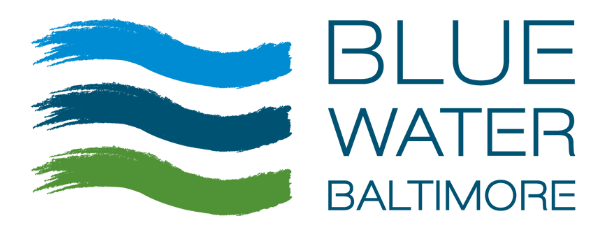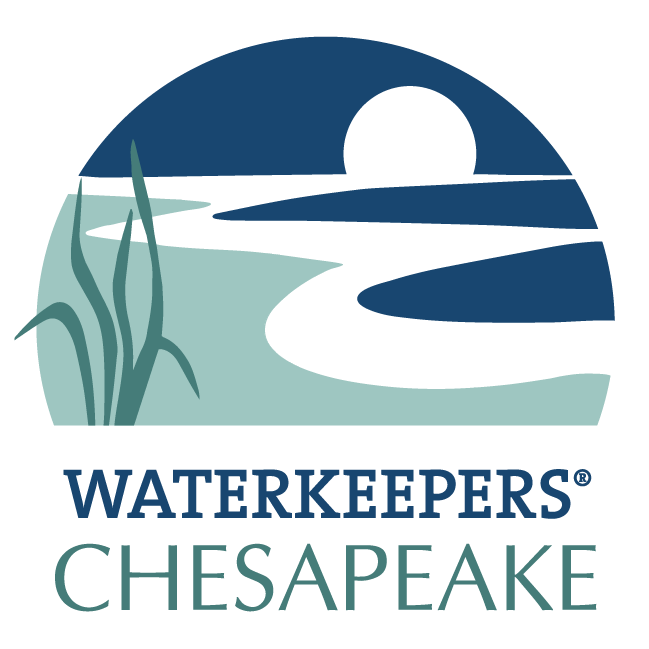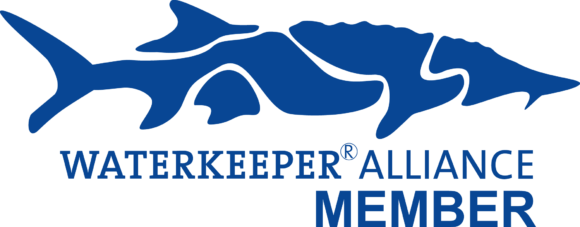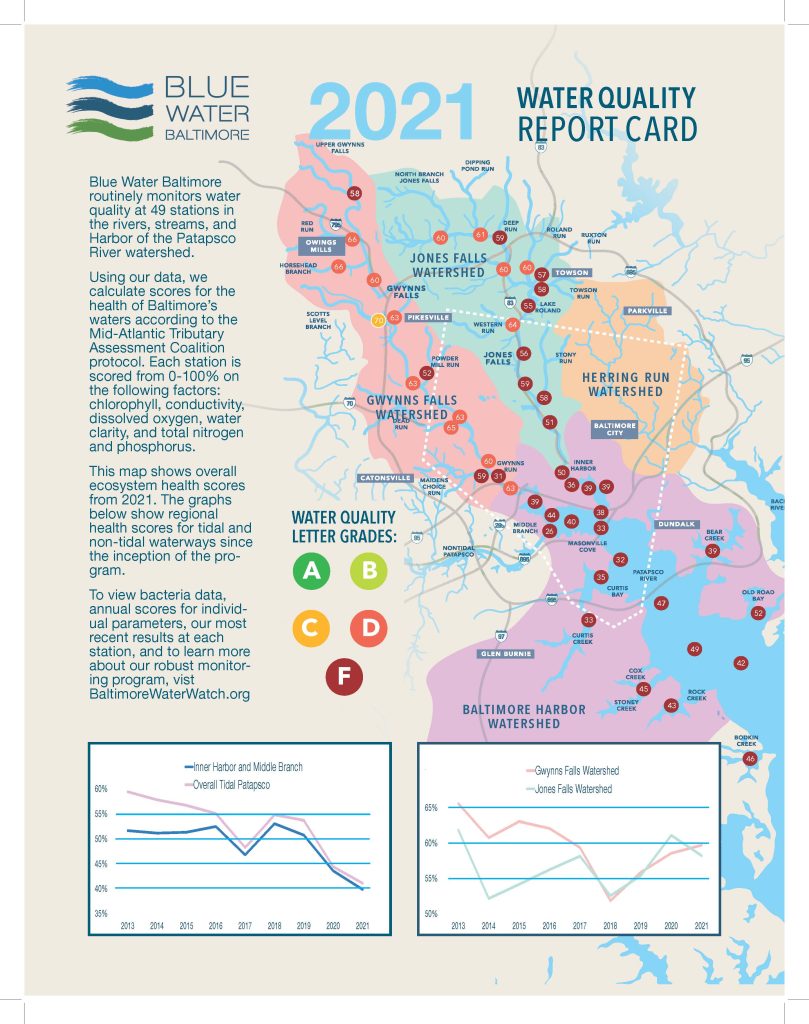Protecting Baltimore’s Waterways
Blue Water Baltimore is home to the Baltimore Harbor Waterkeeper and a proud member of the international Waterkeeper Alliance.
Our mission is to protect and restore Baltimore’s watershed, including rivers, streams, and harbor to foster a healthy environment, a strong economy, and thriving communities.
Our Waterkeeper and staff scientists who lead our ambient water quality monitoring that generates the data for this report are supported by private and governmental grants as well as donations from supporting members.
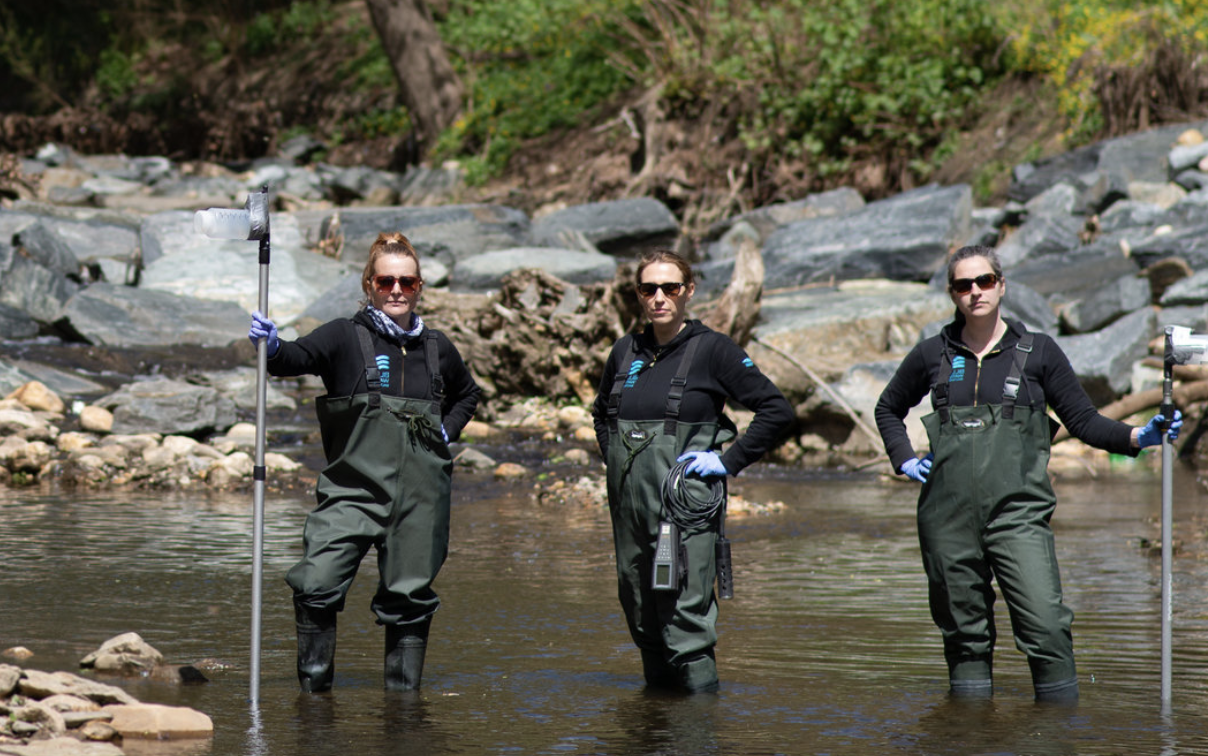
Meet your Baltimore Water Keeper
Alice Volpitta!
Alice Volpitta has served as Blue Water Baltimore’s lead water quality scientist for nearly six years.
Baltimore Harbor Waterkeeper
The Baltimore Harbor Waterkeeper uses science and the law to hold polluters accountable and to ensure that the government is upholding the Clean Water Act.
Our Baltimore Harbor Waterkeeper team focuses on protecting and restoring the tidal and non-tidal waterways that flow into the Baltimore Harbor and the Patapsco River. We advocate for stronger enforcement of our laws for clean water, both locally in the Baltimore area and statewide.
Working hand in hand with our local community we amplify the voice of the people who are directly impacted by the top pollutants plaguing our City: trash, contaminated stormwater runoff, sewage, and toxics.
Watershed baltimore
Monitoring Baltimore’s Watersheds
A watershed is an area of land that catches rain or snow, which then drains into a river, stream, or other body of water.
Together, the watersheds of Baltimore encompass 194 square miles of land, 454 miles of stream, and more than 1 million residents.
Baltimore Watersheds include:
+ Jones Falls
+ Gwynns Falls
+ Baltimore Harbor
+ Herring Run
Current Conditions of Baltimore’s Waterways
Each year, Blue Water Baltimore collects and synthesizes tens of thousands of individual data points in order to score the health of our regional waterways.
Blue Water Baltimore follows guidance from the Code of Maryland Regulations (COMAR) to determine if a site is meeting state-mandated water quality standards at any given time.
Water Quality Report Card
Blue Water Baltimore issues a yearly Water Quality Report Card, based on our monitoring result for the previous year, to give residents and policy makers a look at local trends in water quality.
Healthy Harbor Report Card & Harbor Heartbeat
The Healthy Harbor Report Card (2011 – 2016) was produced by Blue Water Baltimore in partnership with the Waterfront Partnership of Baltimore to raise public awareness about the state of our waterways. The Harbor Heartbeat report (2018), developed by the Waterfront Partnership of Baltimore, also showcases Blue Water Baltimore’s water quality and restoration data, and compiles data from other partners as well.
Monitoring the Baltimore watershed
Baltimore Water Watch
Every indicator we track is important.
From the Dissolved Oxygen content in the Inner Harbor to the Conductivity levels in the Towson Run, each measurement has a story to tell about the ecology of our streams, rivers, and harbor – and the pollutants degrading them.
The long-term dataset that Blue Water Baltimore has been building since 2013 is used by academic institutions, state regulators, local law-makers, and members of the public to make informed decisions about our waterways.
This important work is the scientific backbone of the restoration, advocacy, outreach, and education work we conduct year-round.
49
monitoring sites
141k
readings collected
12
years of watershed health data
Blue Water Baltimore
A path to clean water
Every stream, river, and creek in our watershed acts as pipeline that eventually empties into the Chesapeake Bay.
Our actions on land throughout the watershed directly impacts water quality in our streams, rivers, and harbor. Runoff from lawns and pavement can carry harmful pollutants into our waterways. The protection and restoration of our waterways is an essential element to healthy and vibrant communities.
Blue Water Baltimore is actively working with citizens and local authorities to prevent four major sources of water pollution:
Stormwater Runoff
Every time it rains, trash, bacteria, heavy metals, and other pollutants are washed from city streets and roofs into local streams and the harbor.
In 2021 Blue Water Baltimore:
Help us to expand our water pollution solutions.
Investigated
100
pollution reports
Collected
1,500
water samples
Removed
11,000
of impervious surface
Collected
2,480
lbs of trash
Here’s how to help
Join the fight to fix Baltimore City’s water issues
Our mission is to restore the quality of Baltimore’s rivers, streams, and harbor to foster a healthy environment, a strong economy, and thriving communities.
Here is how to Get Involved

Stay Informed
Join our mailing list to get updated information on water qualities, on opportunities for making impact, and for special invitations to local events.

Volunteer with us
Meet new people, explore Baltimore, and lend a helping hand as a Blue Water Baltimore volunteer to protect and improve our city!

Become a member
A donation of any size makes you a member of Blue Water Baltimore and part of our fight for clean water and strong communities.
